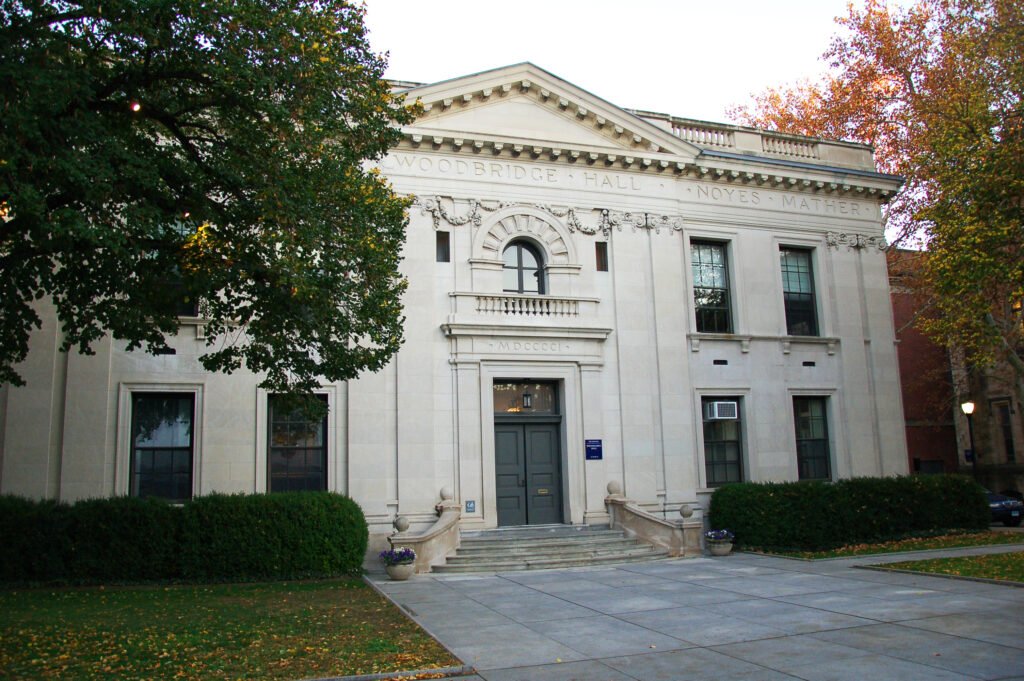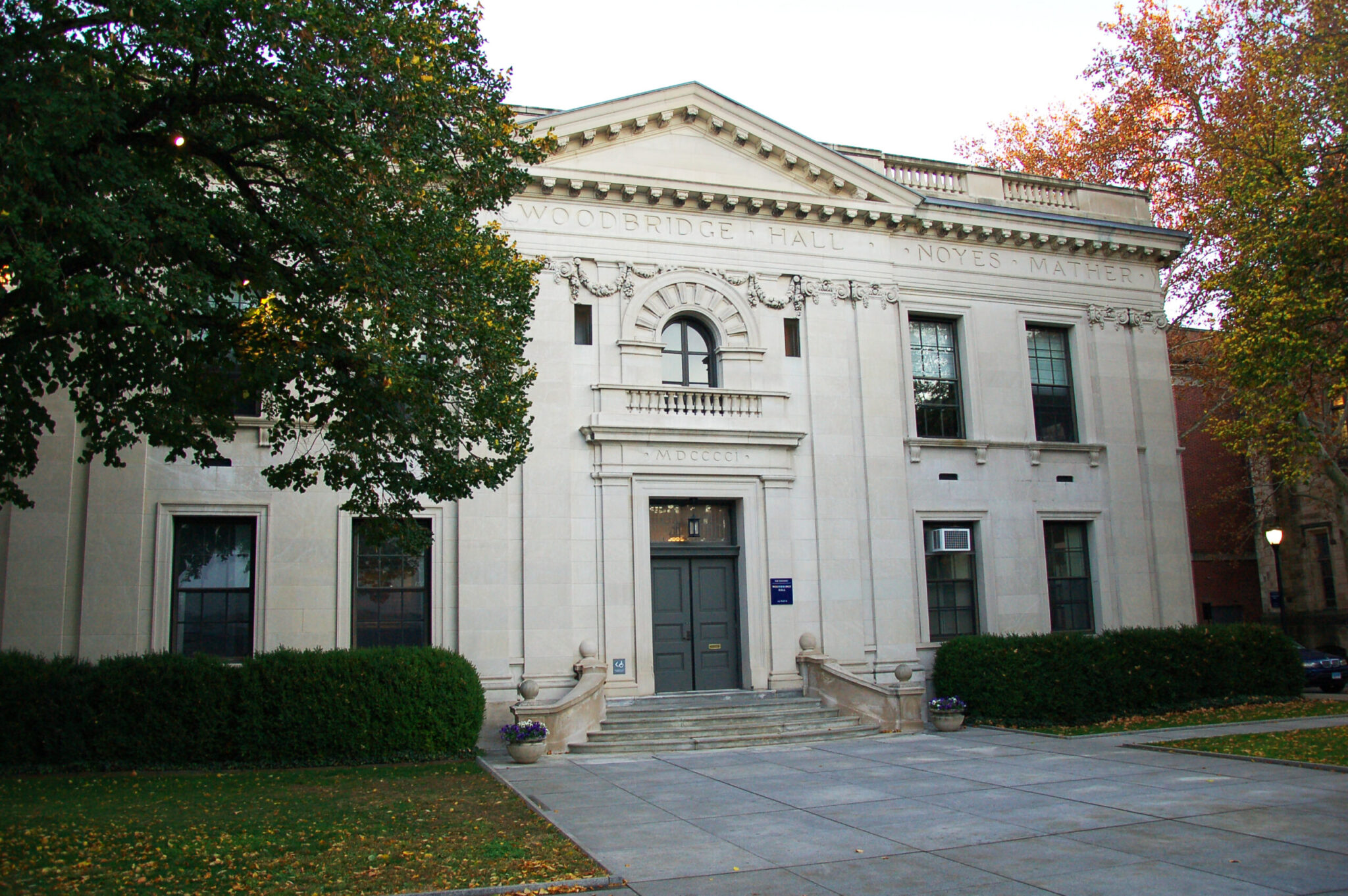Yale President-elect McInnis praised for past leadership, leaves Stony Brook divided over handling of campus protests


Aydin Akyol
Amid Yale’s announcement of Maurie McInnis GRD ’90 GRD ’96 as its next president, McInnis’s departure from Stony Brook University underscores a four-year tenure marked by strong leadership but marred by recent controversy over her handling of campus protests.
McInnis, who earned her master’s and doctoral degrees in the history of art from Yale and held administrative roles at the University of Virginia and the University of Texas at Austin, has served as Stony Brook’s president since March 2020. After a nine-month presidential search, Yale’s Board of Trustees — of which McInnis is a member — announced on Wednesday that McInnis will succeed outgoing University President Peter Salovey. Her term begins on July 1.
McInnis’s tenure at Stony Brook has seen the university, which is part of the public State University of New York system, through an era of transformative growth. She is credited with successfully seeing the school through the COVID-19 pandemic, helping to obtain the designation of a “flagship” SUNY campus and securing a historic $500 million gift from the Simons Foundation in 2023.
Though widely praised for her prowess as a fundraiser, McInnis has clashed with Stony Brook faculty members over campus free speech policies in relation to campus activism. In April, the News reported on faculty members who expressed discontent with McInnis’s unwillingness to engage with community concerns following the arrest of nine students at a pro-Palestine sit-in.
More recently, McInnis has been criticized by students and faculty for her handling of a pro-Palestine protests in which two faculty members and nearly two dozen students were arrested early in the morning on May 2. In the following weeks, McInnis barely survived a motion to censure by Stony Brook’s University Senate, and her administration has come under fire for campus policing tactics perceived as overly aggressive and a lack of administrative transparency.
“There are many who will be sad to see [McInnis] leaving Stony Brook,” wrote Richard Larson, the president of the University Senate and a professor of linguistics. “And there will be others who are deeply disappointed in her, disappointed that she and the small group of people advising her were unable to find a more creative, less-divisive solution to our challenges, and who will feel that this departure is perhaps for the best.”
Stony Brook faculty react to departure, reflect on McInnis’s tenure
McInnis was Stony Brook’s sixth president, and her four-year stint in the position will be the shortest non-interim tenure since that of the university’s first president in 1961.
Larson referred to the first three years of McInnis’s tenure as “terrific,” highlighting a positive response to the challenges posed by the COVID-19 pandemic, fundraising efforts, strong relationships with New York state legislature and the governor’s office and securing a $700 million bid to lead the “New York Climate Exchange” on Governors Island. Going into the spring semester, he said, McInnis boasted the highest campus survey ratings for an administrator in “many years.”
“Fast forward 11 weeks or so, and she barely survived a Senate censure vote,” Larson said.
Larson’s relationship with McInnis deteriorated in the final weeks of her presidency, particularly after he received a “shock” inquiry from the News in April that stated McInnis could possibly be under consideration for the Yale presidency. The News had contacted Larson after McInnis had provided him as a reference regarding her presidency at Stony Brook.
“Honestly, we’re all a bit in shock to discover that our president, whom we regarded as entirely committed to Stony Brook and its future, is actively seeking a leadership position at another institution, specifically a private one, after many declarations of commitment to public education,” Larson wrote in an April 17 email response.
That response, Larson said, “initiated a steady downhill slide” with McInnis and her office, who canceled all future meetings with Larson as Senate president and stopped responding to his texts and emails.
Multiple professors told the News that rumors about McInnis’s possible appointment at Yale had been circulating around Stony Brook’s campus for the past month.
“The news is a shock but perhaps not so surprising,” wrote Eric Zolov, the undergraduate director of Stony Brook’s history department. “I find it frustrating and destabilizing for her to sing the praises of public education only to jump ship when a better opportunity arises.”
Zolov noted that for “at least three of those years,” the University had “genuinely strong leadership.” He praised McInnis for helping to “elevate SBU’s stature” and securing a “necessary lifeline of funding from the Simons Foundation.”
“Others may point to her calling in the police to dislodge recent protesters as her ‘true legacy,’” Zolov wrote. “But the long term impact of the Simons funding I suspect will override that in the coming years.”
Leaving so soon after the controversy on campus this spring, however, “certainly leaves our campus culture in something of a disarray,” according to Zolov.
Madeline Turan, who chairs the University Senate’s Administrative Review Committee, expressed “surprise” and “disappointment” at hearing that McInnis would not lead the university for a longer period of time. Turan described McInnis as competent and personable.
“I have seen her give reports and listen to concerns from the floor without losing her composure even when confronted in a hostile manner,” Turan wrote. “My personal opinion is that she does her best to present a total picture of a situation as she sees it, and is open to hearing opposing opinions, even if she does not agree or implement those suggestions.”
Perceived mishandling of student arrests leads to narrow censure vote
McInnis’s first publicized clash with students and faculty members came following a March 26 incident in which nine pro-Palestine demonstrators were arrested during a sit-in demonstration at the university’s Administration Building. Over 600 Stony Brook faculty members and students signed an open letter calling for McInnis to revise free speech policies and increase administrative transparency.
At an April 5 University Senate meeting, students disputed McInnis’ claims that students were loud and disruptive, calling on her to drop the charges. The meeting came to an end after students began to chant “shame on you” to McInnis, who walked out of the room.
Still, prior to the arrests on May 2, McInnis’s handling of pro-Palestine protests on Stony Brook’s campus was mostly viewed favorably by faculty. Turan told the News that the committee had surveyed faculty members about the protests on campus. The number of respondents who agreed or strongly agreed with the administration’s handling of the protests was considerably larger than those who disagreed or strongly disagreed, according to Turan.
However, after the May 2 arrests, which involved university police, the local police department and New York state troopers, concerns about the administration’s use of police force became louder.
History professor Paul Gootenberg said he believed that Stony Brook’s protests were small and not well-attended relative to those at other universities — and arrests were unnecessary.
“It was totally unexpected that there would be a move like this in a situation that proffered no threat whatsoever to the university community,” Gootenberg said. “The overreaction was just incredible and dampens freedom of speech and assembly.”
Other professors supported McInnis’ decision to permit arrests. Richard Laskowski, a professor in the College of Business, explained that administrators offered the protesters the chance to relocate, but they refused. Laskowski believes McInnis was right to then “stand up to the students.”
A resolution of no confidence in McInnis’s presidency was introduced to the University Senate on May 6, according to Larson, but was later amended to a censure resolution after faculty members agreed that the initial wording was too strong.
Political science professor Gallya Lahav opposed the censure motion and organized a petition in support of McInnis with other faculty members in the days leading up to the vote. Lahav told the News that the petition received around 350 signatures from faculty, staff members, students and alumni in 72 hours.
The censure vote ultimately failed when 55 faculty members voted against it, 51 voted in favor and three abstained.
“I was shocked by that, I was quite surprised that it would even come that close,” Lahav said. “Until that point, there seemed to be such solid support for her achievements on campus.”
Reflecting on the vote, Larson said that Mcinnis’ decision to bring in local and state police to campus to arrest “entirely peaceful protestors” produced “significant division.”
Larson said that McInnis – who had previously been positive and receptive to faculty input – did not take disagreement with her and her staff’s decision-making in regard to the spring protests “positively or collaboratively.” Multiple professors used the word “intransigence” to describe McInnis’s response input from the faculty senate.
At the same meeting in which the censure motion was introduced, the senate deliberated a resolution calling for McInnis to drop the charges against the arrested faculty and students, and a resolution calling for an investigation of the university’s Enterprise Risk Management program, an umbrella collective of several university departments headed by Chief Security Officer Lawrence Zacarese that includes the campus police.
Enterprise Risk Management — or ERM — was founded in late May 2020, mere months after McInnis assumed her role. Both Gootenberg and Zacarese recalled that McInnis frequently referenced a stabbing incident from her time at UT Austin when explaining her support for a coordination program between risk management departments.
Joshua Dubnau, a professor in the School of Medicine who was one of the two faculty members arrested during the protests, claimed that ERM closely monitored students and faculty involved in the protests, including their social media accounts, to manage Stony Brook’s “risk portfolio.” Dubnau said that the faculty’s knowledge of ERM’s operations was very limited, and recalled an incident where Zacarese approached him at a protest to “complain” about one of Dubnau’s posts on X.
ERM has the authority to review and approve or deny travel related to the scholarship of faculty and students, and was behind the decision to confiscate and hold some protestors’ phones for over two weeks, according to Dubnau.
Zacarese believes that faculty members’ portrayal of ERM is a mischaracterization of the program. He said that many faculty members involved in the senate work very closely with ERM, and are familiar with its organization.
“I fully support the Stony Brook Enterprise Risk Management team, which I created three years ago to bring together separate offices and units to increase efficiency and improve coordination,” McInnis told the News in a statement. “I did so because I care deeply about the students of Stony Brook and the safety of every member of the community. When I take office on July 1, I look forward to meeting with all departments at Yale, including the team at Public Safety.”
Gootenberg said that the senate’s focus on the program emerged from McInnis’s perceived “alliance” with ERM during the protests and arrests.
He expressed surprise that Yale’s presidential search committee chose McInnis to lead the University given her low engagement with faculty members.
“Though she’s very good at the type of political management and fundraising activities that universities like, she really presents no vision whatsoever as an administrator,” Gootenberg said. “Even though she has an academic background, she never presented any intellectual vision whatsoever to the faculty. In fact, she barely interacted with our faculty at all.”
Stony Brook announced on Wednesday that its presidential search to replace McInnis would begin immediately, and an interim president would be named shortly.
Founded in 1957, Stony Brook University serves a student body of over 25,000.





